A Dynamic Platform for Sustainable Business Education and Networking
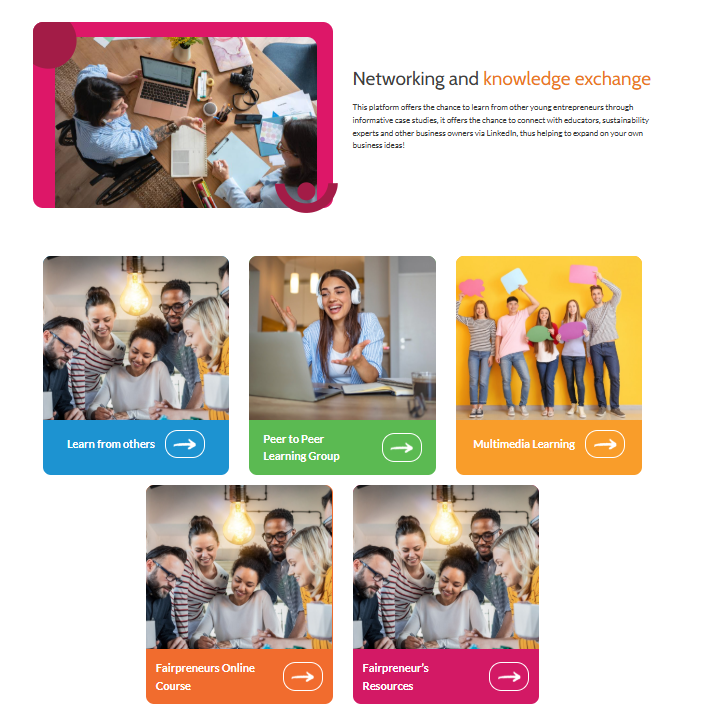
Fairpreneurs, a leading initiative in sustainable entrepreneurship education, proudly announces the launch of its Knowledge Sharing Hub. This innovative platform is designed to empower young and aspiring entrepreneurs, business educators, and youth workers with the tools and resources needed to create ethical and sustainable businesses.
The Knowledge Sharing Hub offers a comprehensive suite of features tailored to foster the next generation of ethical entrepreneurs:
1. Self-Directed Learning: The Fairpreneur's Online Course provides flexible, self-paced learning opportunities in ethical and sustainable entrepreneurship.
2. Multimodal Learning Approach: A diverse range of multimedia content caters to various learning styles, including videos, podcasts, interactive articles, and infographics.

3. Peer-to-Peer Learning: An active community platform encourages knowledge sharing, problem-solving, and networking among aspiring entrepreneurs.

4. Expert Guidance: Users can connect with educators, sustainability experts, and business professionals for industry-specific insights.
5. Interactive Assessments: Integrated quizzes and knowledge checks reinforce learning and ensure practical application of key concepts.

"The Knowledge Sharing Hub embodies our belief that shared knowledge is a catalyst for change,". "By providing an inclusive, engaging, and multimodal learning environment, we're equipping the next generation of entrepreneurs with the skills and mindset needed to create businesses that positively impact society and the environment."
This initiative aligns with Fairpreneurs' ongoing commitment to combat youth unemployment and foster innovation through entrepreneurship education. By promoting socially and environmentally sustainable business practices, the Knowledge Sharing Hub supports the development of a fair economy and contributes to global sustainability goals.
The Knowledge Sharing Hub is now live and accessible to aspiring entrepreneurs, educators, and youth workers worldwide. To explore the platform and join the movement towards ethical entrepreneurial excellence, visit the Fairpreneurs Knowledge Sharing Hub.
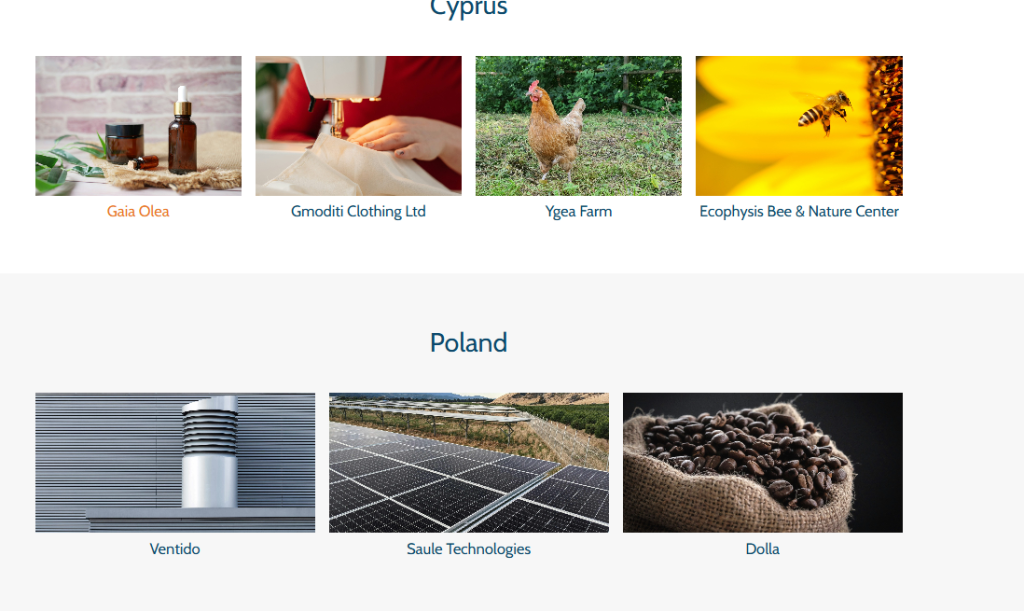
About Fairpreneurs:
Fairpreneurs is an EU-funded project offering inclusive entrepreneurship education resources tailored to empower young people to start sustainable businesses and promote ethical, sustainable, and fair entrepreneurial behavior. Through collaborations with various European partners, Fairpreneurs is at the forefront of fostering sustainable entrepreneurship across the EU.
This project encompasses a multitude of stakeholders, each playing a significant role in its realisation:
Momentum Momentum is an Irish educational organisation that aims to create impact via EU education and innovation programmes by developing innovative curricula, capacity-building courses, and toolkits. All their work promotes inclusion and diversity, with sustainability at the core of everything they do. Momentum provides high-impact evaluation services to several Erasmus projects, demonstrating their ability to capture impact. Website: Momentum
Hub Nicosia Hub Nicosia is an educational NGO and co-working space in Cyprus, fostering a community with cultural, environmental, and social aims. It empowers youth to engage in civic, political, and economic life, offering learning opportunities that promote green and sustainable solutions, democratic participation, active citizenship, youth employment, and entrepreneurial skills, particularly in the creative and cultural sectors. Website: Hub Nicosia
University of Szczecin The University of Szczecin, established in West Pomerania, Poland, serves over 11,000 students across seven faculties. It aims to prepare students for the labour market through close ties with the private sector and international cooperation, enhancing research and teaching quality. The university's numerous projects, worth PLN 200 million, bolster its scientific and infrastructure base, facilitating collaborations with economic and research entities globally. Website: University of Szczecin
Thevisionworks (tvw GmbH) Thevisionworks, based in Germany, is a consultancy specialising in supporting start-ups and SMEs during growth, crises, succession planning, change management, and digital transformation. Recognised for expertise in crisis and restructuring consultancy and ESG practices, the firm emphasises practical implementation of strategies, social responsibility initiatives, and collaboration with various sectors. Its team brings diverse qualifications in management, IT, law, and more, ensuring a holistic approach to business challenges. Website: Thevisionworks
Community Enterprise Association Ireland (CEAI) CEAI is the National Association for Community Enterprise Centres and Enterprise Hubs across Ireland. Founded in 2008 and established as a not-for-profit in 2019, it represents around 150 government-supported enterprise investments. CEAI advocates for the community enterprise sector, promoting job creation, economic growth, and social impact. Recognised by the national government, it supports regional enterprise ecosystems and strives for balanced, sustainable development through collaboration, advocacy, and strategic partnerships. Website: CEAI
Social Media:
Empowering Youth Educators to Foster Global Innovation and Sustainability
July 2024
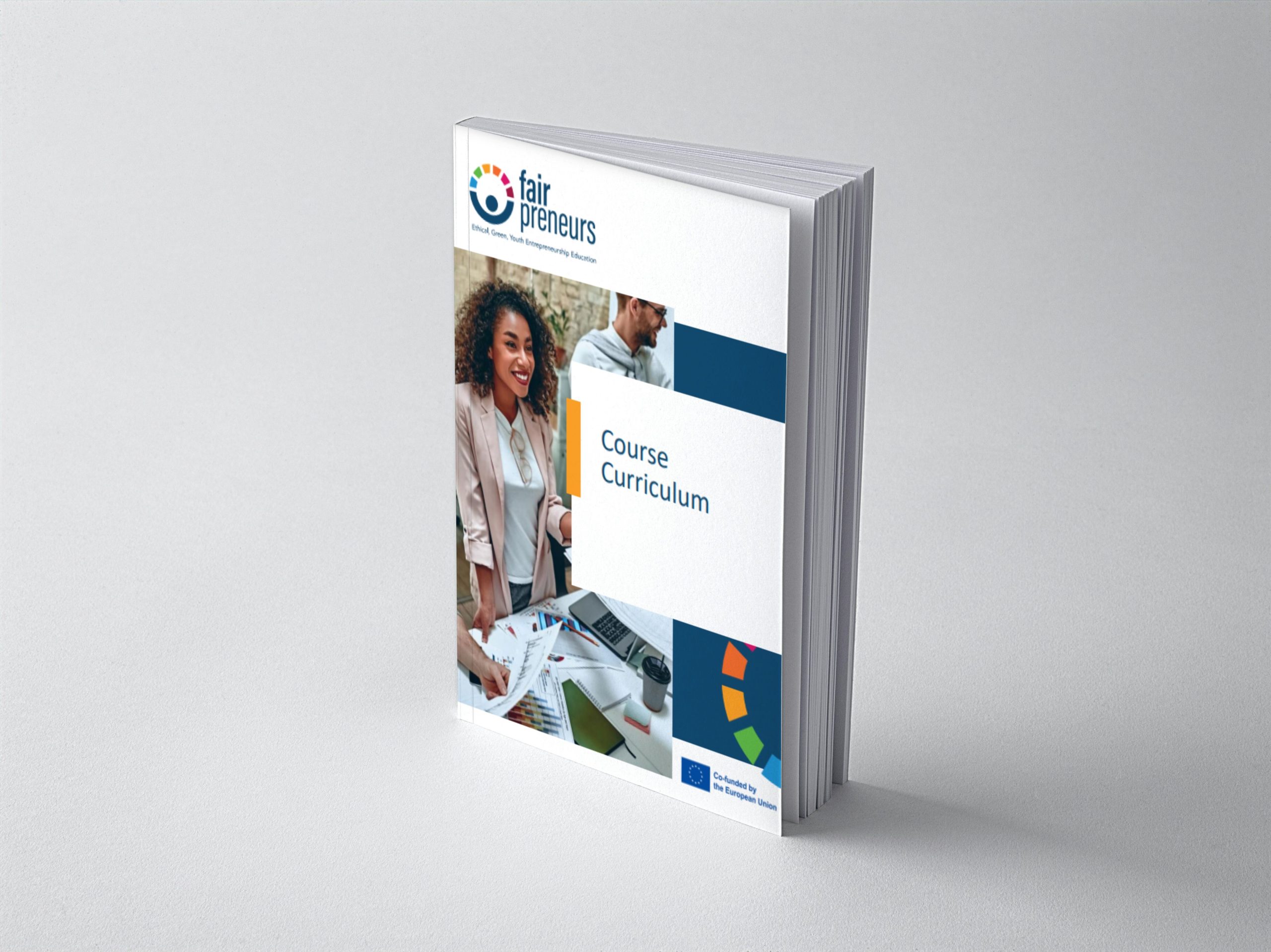
The Fairpreneurs Project Team is delighted to announce the launch of its Case Study Compendium & Curriculum, an innovative resource designed to support and equip youth educators across the EU regions in nurturing the next generation of ethical entrepreneurs.
Fairpreneurs, funded by the European Union under the current Erasmus+ Programme, provides a comprehensive range of ethical entrepreneurship education resources specifically tailored to support young people start and grow sustainable businesses - promoting ethical, sustainable, and fair entrepreneurial behaviour.
The Project Partnership includes The Community Enterprise Association Ireland CEAI, ensuring that Ireland's commitment to fostering entrepreneurship and sustainability is supported through participation in this Project.
The Fairpreneurs’ Case Study Compendium is a cornerstone of the Project and will support and encourage young Irish entrepreneurs to contribute to the SDGs by:
The Compendium is based on a blend of interviews with organisation representatives and comprehensive desk research, ensuring a robust overview of best practices across multiple industries and countries. This methodology provides practical examples and insights, inspiring young entrepreneurs to leverage the SDGs for innovation and positive change.
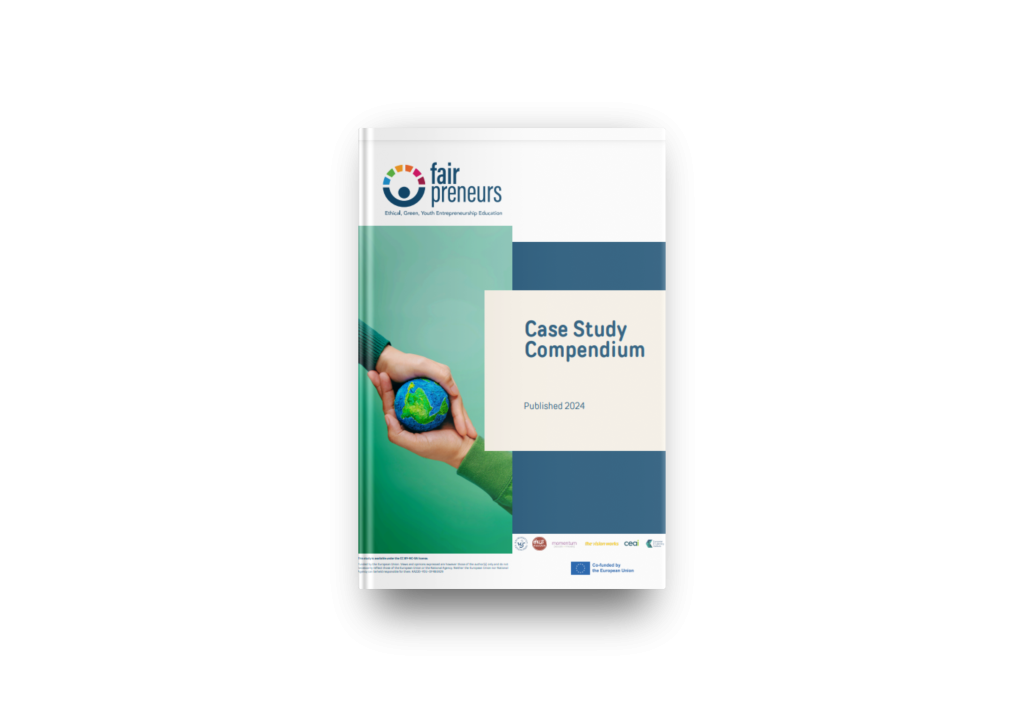
The Fairpreneurs Project aligns with national initiatives such as Enterprise Ireland's and Local Enterprise Offices’ efforts to enhance opportunities for young entrepreneurs, counteracting youth unemployment and fostering social engagement. By promoting socially and environmentally sustainable entrepreneurship, Fairpreneurs supports a fair economy and sustainable development in Ireland.
With youth unemployment in the EU a significant concern, Fairpreneurs recognises the urgency of its mission, particularly amidst current global uncertainties. By advocating for entrepreneurship education as an important tool to combat youth unemployment and social exclusion while fostering innovation, Fairpreneurs strives to empower young entrepreneurs to drive positive change and sustainable development, both locally and globally.
You can explore all the case studies and educational resources at: Fairpreneurs Case Study Compendium & Curriculum
ENDS
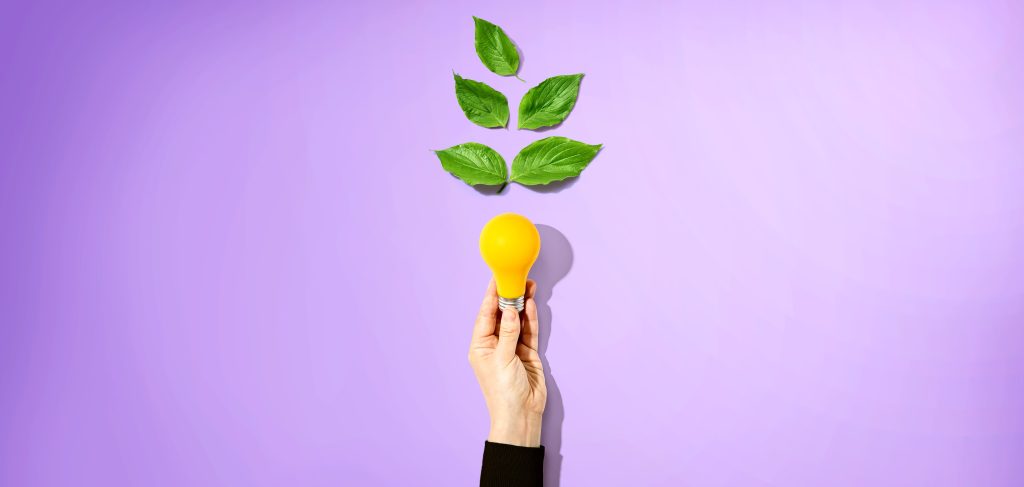
This project encompasses a multitude of stakeholders, each playing a significant role in its realisation:
Momentum Momentum is an Irish educational organisation that aims to create impact via EU education and innovation programmes by developing innovative curricula, capacity-building courses, and toolkits. All their work promotes inclusion and diversity, with sustainability at the core of everything they do. Momentum provides high-impact evaluation services to several Erasmus projects, demonstrating their ability to capture impact. Website: Momentum
Hub Nicosia Hub Nicosia is an educational NGO and co-working space in Cyprus, fostering a community with cultural, environmental, and social aims. It empowers youth to engage in civic, political, and economic life, offering learning opportunities that promote green and sustainable solutions, democratic participation, active citizenship, youth employment, and entrepreneurial skills, particularly in the creative and cultural sectors. Website: Hub Nicosia
University of Szczecin The University of Szczecin, established in West Pomerania, Poland, serves over 11,000 students across seven faculties. It aims to prepare students for the labour market through close ties with the private sector and international cooperation, enhancing research and teaching quality. The university's numerous projects, worth PLN 200 million, bolster its scientific and infrastructure base, facilitating collaborations with economic and research entities globally. Website: University of Szczecin
Thevisionworks (tvw GmbH) Thevisionworks, based in Germany, is a consultancy specialising in supporting start-ups and SMEs during growth, crises, succession planning, change management, and digital transformation. Recognised for expertise in crisis and restructuring consultancy and ESG practices, the firm emphasises practical implementation of strategies, social responsibility initiatives, and collaboration with various sectors. Its team brings diverse qualifications in management, IT, law, and more, ensuring a holistic approach to business challenges. Website: Thevisionworks
Community Enterprise Association Ireland CEAI is the National Association for Community Enterprise Centres and Enterprise Hubs across the Irish National Hub Network. It is the independent Expert Voice for the sector representing, facilitating, and advocating on behalf of the sector, working with people and communities to promote and support enterprise development and to drive job creation, economic growth, and positive social impact across the regions. Website: CEAI
Social Media:
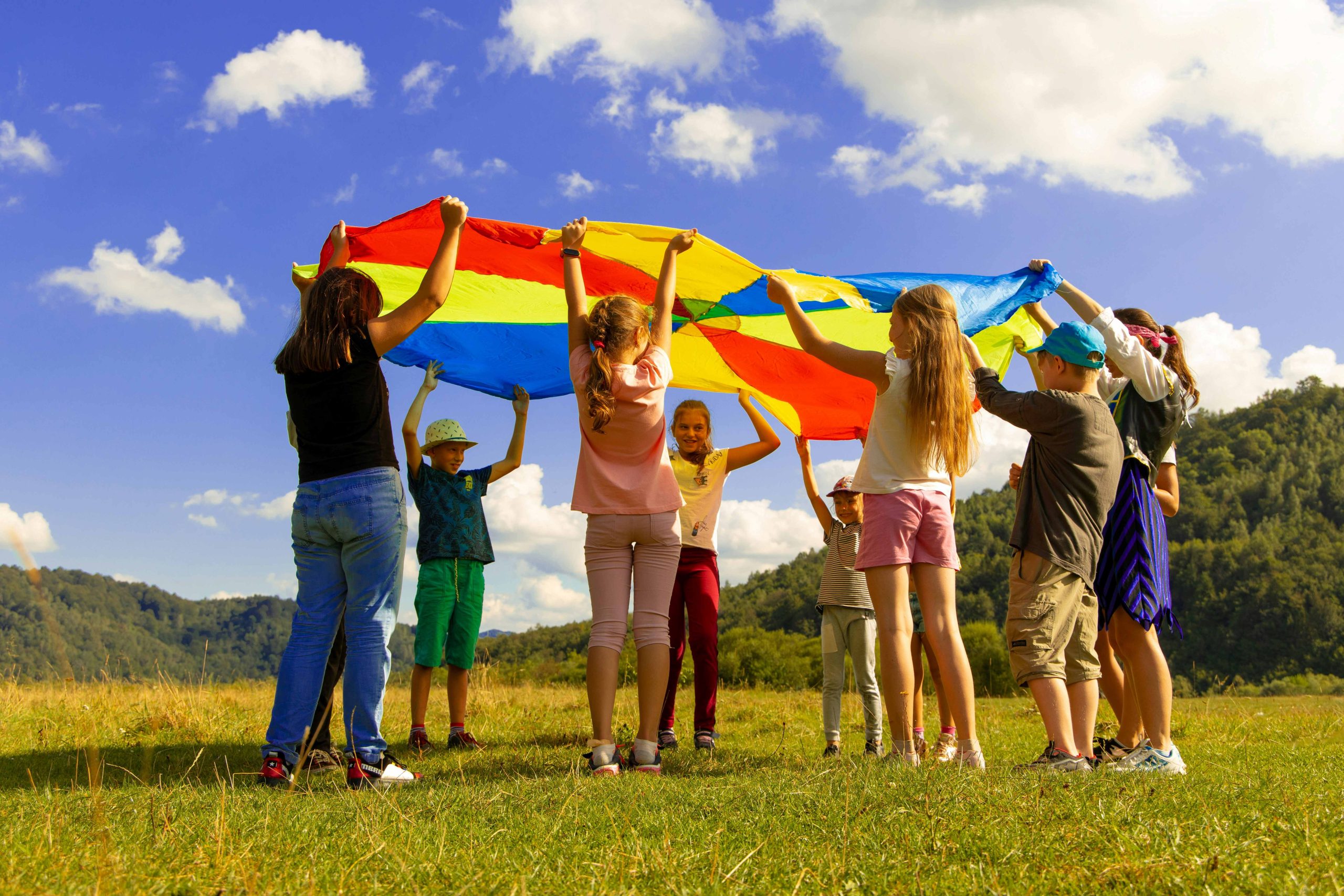
Seed Scholars is a nature-based experiential eco-education initiative that seeks to re-root young people and their networks in relationships of curiosity and care with the outdoor environment.
About
Seed Scholars seek to integrate interdisciplinary, nature-based learning as an art and a science. Through home greenspace consultations, weekend family workshops, event engagements, teacher courses, after school experiences, and the core primary schools program, Seed Scholars' work hopes to spark and support ongoing nature connection. Seed Scholars arranges for taster workshops for school or community settings who are interested in getting a feeling for what Seed Scholars programming is like. These workshops are intended to introduce groups to Seed Scholars experiences to then assess if they would like to sign up for a full set of sessions. Seed Scholars also partners with ethos-aligned events, festivals and conferences on a case by case basis to offer virtual, in-person, or blended talks, lectures or demonstrations.
Sustainable Development
https://www.seed-scholars.com/
Seed Scholars aims to cultivate nature skills and awareness, collaboration, and creativity as well as a sense of awe stemming from engagement with the interconnected cycles of the seasons. Through facilitated grounding in regular attention to place and its wonders, the company believes participants will feel intrinsically drawn and oriented towards stewardship, climate mitigation, and social justice action.
Sustainability Impact
Problem: The growing lack of quality time spent with natural landscapes is proven to negatively impact attention span, mental and physical health. Solution: At the core of the business is the desire to heal this rift through spending meaningful time outside together and hearing and sharing the stories that surface. As a result of this, young people are simultaneously working towards restoring their own collective wellbeing. Activities range from nature games, songs, and storytelling, to wild foraging, growing an edible garden and learning about climate awareness. Impact: Through outdoor nature-based learning programmes, the company supports holistic wellbeing as communities tend to themselves, each other and the land where they live.
SDGs goals and Sustainable development strategy
Goal 11. Sustainable Cities and Communities: Core Activity: Grass-roots engagement and activities for young people Impact: Fair and equal access to nature for children across Ireland Key Characteristics: Promotes sustainable engagement with nature Contributors: Students | Families | Communities |Civil Society
Goal 12. Responsible Consumption and Production: Core Activity: Greater awareness and education = better, more selective choices Impact: Improves awareness of the importance of nature and the role it needs to play to preserve the future of our planet Key Characteristics: Promotes responsible consumption and production Contributors: Educators | Service Providers | Buyers | Media | Communities
Goal 17. Partnerships for the Goals: Core Activity: Support to drive small and large initiative which allow young people engage with nature Impact: Fair and equal access to nature for children across Ireland Key Characteristics: Access to nature resources Contributors: Educators | Stakeholders | Communities| Young People | Families
Strategy & Mission
The Seed Scholars solution to Richard Louve's described "nature deficit disorder" is not new, and looks to the long traditions from ancestral ways of knowing to re-form a multi-branched approach to the deep and impactful work of nature reconnection, reaching young people & their networks in a range of spaces.
Impact Evaluation
They have no knowledge on how to monitor their sustainable practices impact. But it is definitely something they would like to be able to do, they would like tools to be able to do so.
Motivation
Motivation to be in line with SDGs is natural for them. It is what they want to be doing, and what makes them happy. They don’t want to be harming the environment and they are passionate about teaching others to do the same and to encourage them to be a part of this change. Sustainable practices is a part of their core personal values.
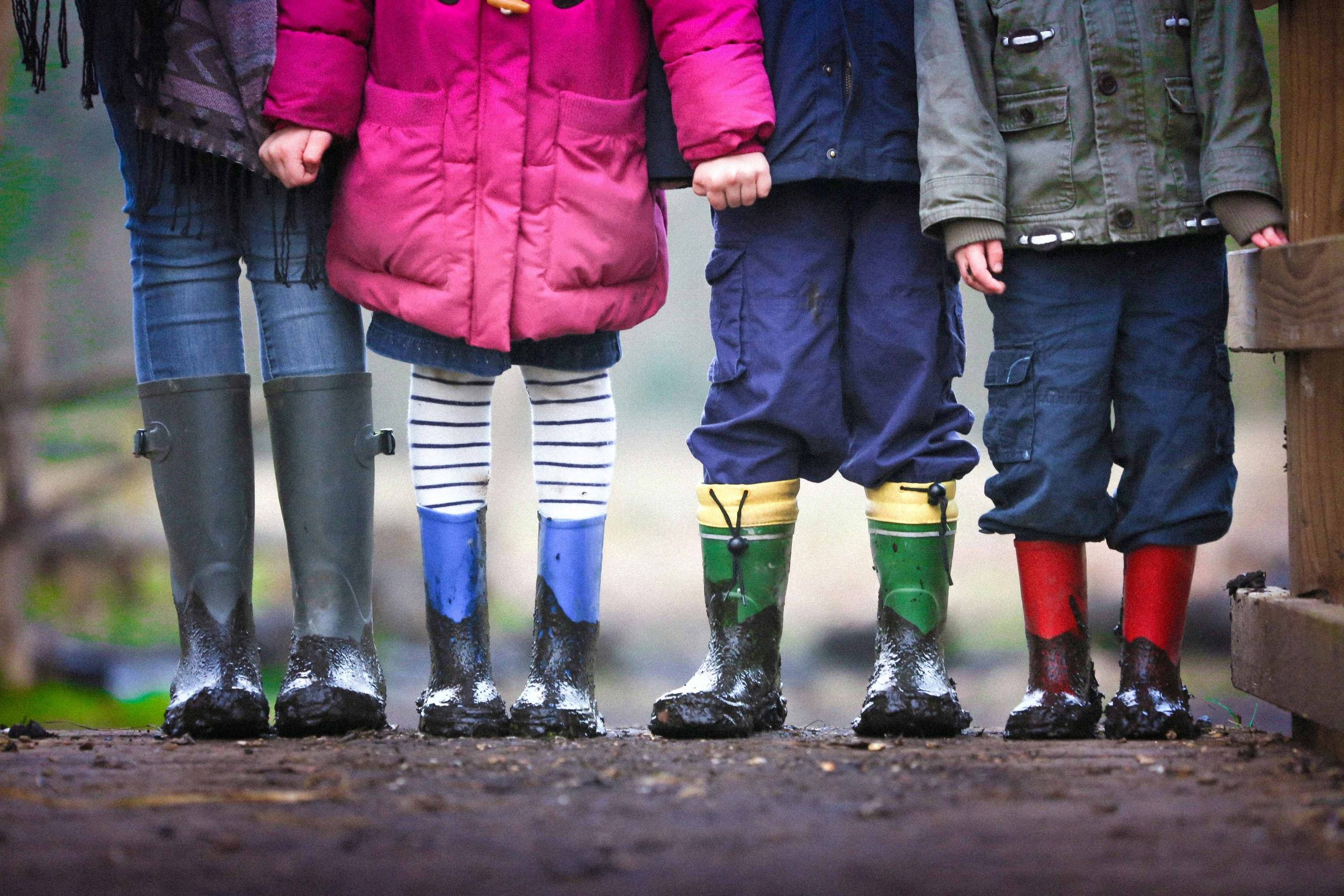
Dabbledoo is an independent Irish company dedicated to providing primary schools with the resources, training and support to deliver the music, visual art and drama curricula.
About
The dabbledoo team believes that arts education is one of the most meaningful and accessible avenues for children to connect with diverse cultures, fostering self-esteem, empathy, kindness, and tolerance. They are committed to expanding their organization and product offerings in a manner that prioritizes diversity, inclusion, and equality. Dabbledoo Music makes it easy for schools to cover all areas of the primary level music curriculum in a fun and accessible manner for both teachers and students. The system encourages creativity, imagination, and builds confidence among teachers and children, enabling them to realize their musical potential.
Sustainable Development
Problem: The arts are particularly powerful and transformative when experienced as a child. Although arts education is recognised at a national policy as being “fundamental to an education that aspires to nurture and support the development of the whole person” many children in Ireland face barriers in experiencing music, dance, drama and visual art. In schools, these subjects have traditionally been seen as less important or less useful than core subjects of maths, science and languages. On top of this is that primary school teachers often do not feel comfortable or confident in delivering music and arts education. As they are often under pressure to deliver all other subjects, this lack of confidence means the arts can slip down the priority list. Children who do not have the means or the family support to take part in the arts outside school face further obstacles. Children from disadvantaged areas, children with additional learning needs and children for minority backgrounds all face problems in accessing the arts and arts education. Solution: Dabbledoo is an independent Irish company dedicated to providing primary schools with the resources, training and support to deliver high-quality and accessible arts and music education. They are a team of educators, artists, musicians and designers with a passion for arts education and its potential to enrich the lives of children. The team has also built an accessible online platform providing all children in Ireland with quality arts education each week, which fits right in with the national curriculum. Impact: In January 2023, dabbledoo had more than 7,200 active teachers on the platform, reaching upwards of 1,200 schools and 182,000 children. Dabbledoo have step by step weekly lessons which fit perfectly into the primary school arts curriculum and plan content to make it easier than ever for teachers with no arts or music backgrounds to teach those subjects in a fun and effective manner.
Sustainability Impact
Develop drama and visual arts programs which can be accessed by primary schools all over Ireland.
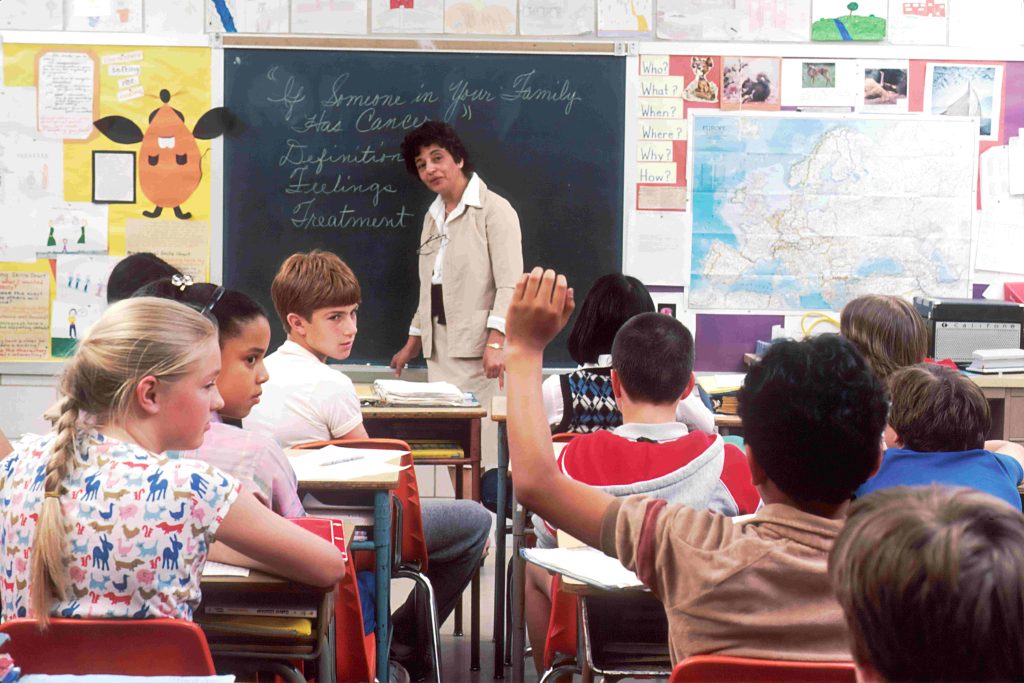
SDGs goals and Sustainable development strategy
Goal 4. Quality Education: Core Activity: To support Irish primary schools with Music, Drama, Art through the development of classroom resources which make lessons fun and accessible for teachers and children. Impact: Fair and equal access to music, drama and art education in communities across Ireland. Key Characteristics: Encourages creativity and imagination and builds confidence amongst teachers and children to fulfil their musical potential. Contributors: Educators | Parents | Children | Funders.
Goal 17. Partnerships for the Goals: Core Activity: Dabbledoo Music makes it easy for schools to cover all areas of the primary level music curriculum in a fun and accessible way for teachers and students alike. Impact: Access for all children across Ireland to music, drama and art education. Key Characteristics: Collaboration on events outside the school day such as Christmas, Halloween and Summer Camps. Contributors: Educators | Parents | Children | Communities.
Strategy & Mission
The dabbledoo team believe the arts are among the most meaningful and accessible ways for children to relate to different cultures. Arts education helps children grow their own self esteem while developing empathy, kindness and tolerance for others.
Need for Improvement
The traditional educational curriculum for primary school students (age 5 – 12 years) in Ireland is quite narrow and traditional and teaching staff are not equipped or resourced to move outside the curriculum. The teachers also need to be educated as to what is possible when working outside the curriculum.
Motivation
The realization that not all children could access music and the arts without barriers, often related to their own socio-economic situation.
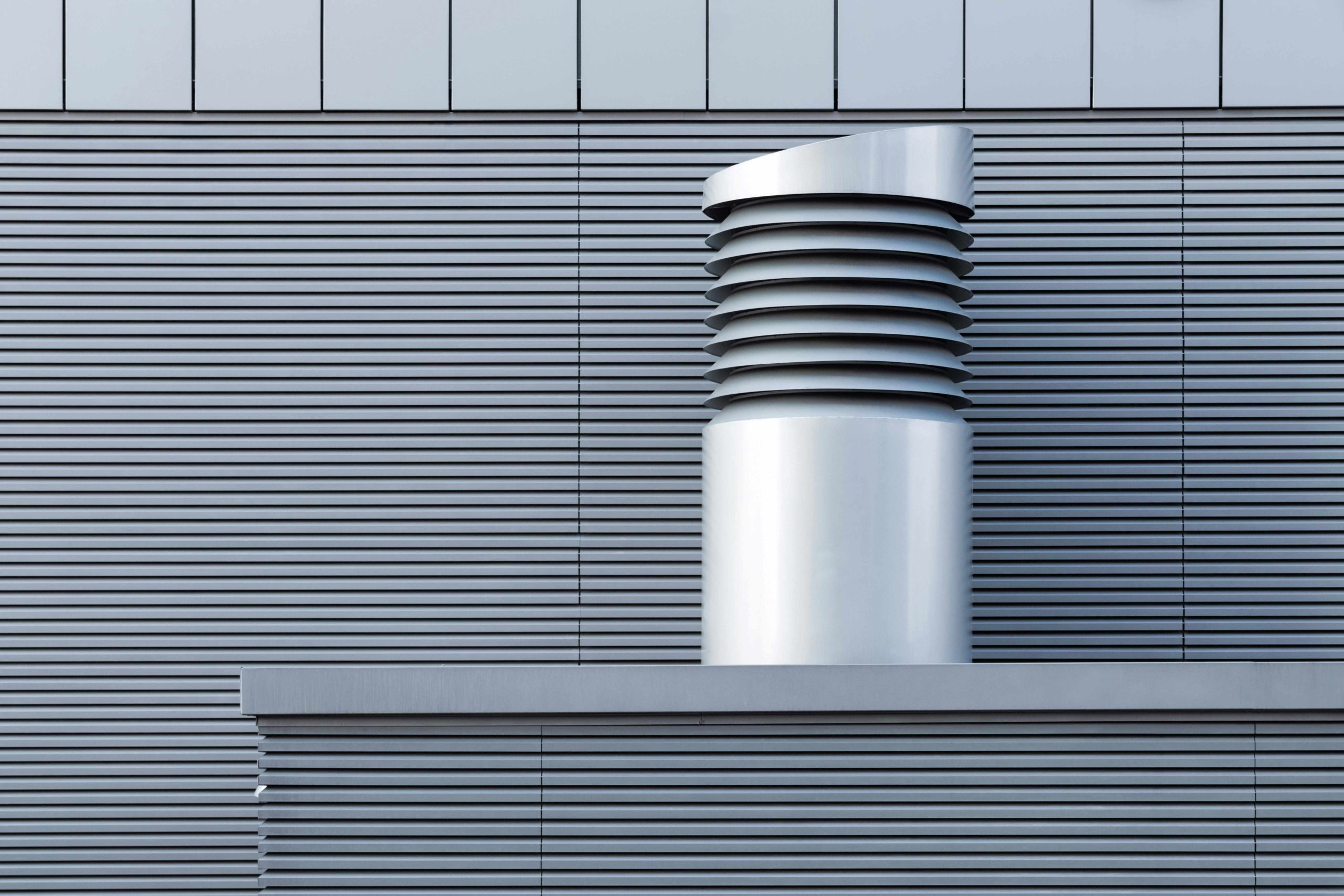
Deliver top-quality materials and devices promptly, enhancing air quality for global residents in the realms of ventilation, recuperation, and air conditioning projects
About
Founded in 2020, VENTIDO roots its establishment in a rich history of more than 10 years operating in the ventilation and recuperation sector. This extensive experience serves as a foundation for the company's commitment to customer satisfaction. The year 2020 marks a significant milestone in VENTIDO's journey, formalizing its dedication to providing tailored solutions for clients' ventilation, recuperation, and air conditioning projects. The team, driven by the motto "trust in experience," aims to redefine service quality and approach in collaboration with all stakeholders, particularly conscious customers seeking reliable solutions in the market. VENTIDO is a dynamic team of young professionals specializing in the distribution and exploration of innovative solutions in the HVAC (Heating, Ventilation, Air Conditioning) industry. VENTIDO draws on over a decade of experience in the ventilation and recuperation sector, ensuring a deep understanding of key customer satisfaction factors. The team's expertise, coupled with education and practical know-how, uniquely positions VENTIDO to comprehend and address the challenges faced by its clients on a daily basis. The primary mission is to deliver top-quality materials and devices promptly, enhancing air quality for global residents in the realms of ventilation, recuperation, and air conditioning projects.
Sustainable Development
Customers increasingly recognize the benefits of renewable energy applications, such as recuperation, enabling them to reduce daily energy consumption. This not only saves energy and enhances comfort but also positively impacts the natural environment. Sustainable development significantly influences our business, as heightened customer awareness leads to a greater adoption of our solutions. This is crucial for us because customers consciously choose our offerings, aligning with environmental care. We consistently work on new sustainable development solutions to ensure customer satisfaction, contribute to industry reputation, and elevate awareness.
Sustainability Impact
Regardless of the industry, every business should be aware of the dimensions of sustainable development it can focus on. Setting goals oriented toward sustainable development is crucial for companies. It positively impacts the company's image, aligning with a vision of a sustainable world, and translates into financial performance and positive customer feedback. Balancing social and economic goals is intertwined, where social objectives contribute significantly to the economic goals of the company. In our company, we continuously set and refine goals, ensuring that even the smallest actions positively contribute to sustainable development.
SDGs goals and Sustainable development strategy
Goal 3. Good Health and Well-Being: VENTIDO enhances indoor air quality through air filtration and thermal treatment, contributing to improved well-being.
Goal 4. Quality Education: The company collaborates with higher education institutions to raise awareness among young people and implements new solutions for sustainable development.
Goal 7: Affordable and Clean Energy: VENTIDO employs recuperation systems to recover up to 90% of energy used for heating, ensuring affordability and sustainability.
Goal 9: Industry, Innovation, and Infrastructure: The company continuously modifies its product range to meet market demands, fostering sustainable industrialization.
Goal 11. Sustainable Cities and Communities: VENTIDO sells innovative HVAC devices, supporting clients in creating exclusive, safe, resilient, and sustainable urban environments.
Goal 12. Responsible Consumption and Production: The company educates customers on the use of recuperation for energy conservation, promoting responsible consumption.
Goal 13. Climate Action: VENTIDO reduces energy consumption through recuperation, contributing to lower pollution and environmental degradation.
Goal 17. Partnerships for the Goals: VENTIDO collaborates with responsible partners and industry leaders to strengthen global partnerships for sustainable development.
Strategy & Mission
VENTIDO's mission is to provide high-quality materials and HVAC devices for ventilation, recuperation, and air conditioning, aiming to enhance the global air quality for every inhabitant of the planet. The company envisions a world where its solutions contribute to a healthier environment and improved well-being. Sustainability Strategy: VENTIDO's strategy prioritizes sustainable development by reducing energy consumption and educating customers on the importance of clean energy usage. The company continuously modifies its product range to align with market demands, emphasizing responsible consumption and production. Through collaborations with responsible partners, VENTIDO aims to strengthen global partnerships for sustainable development, contributing to a resilient and eco-friendly future.
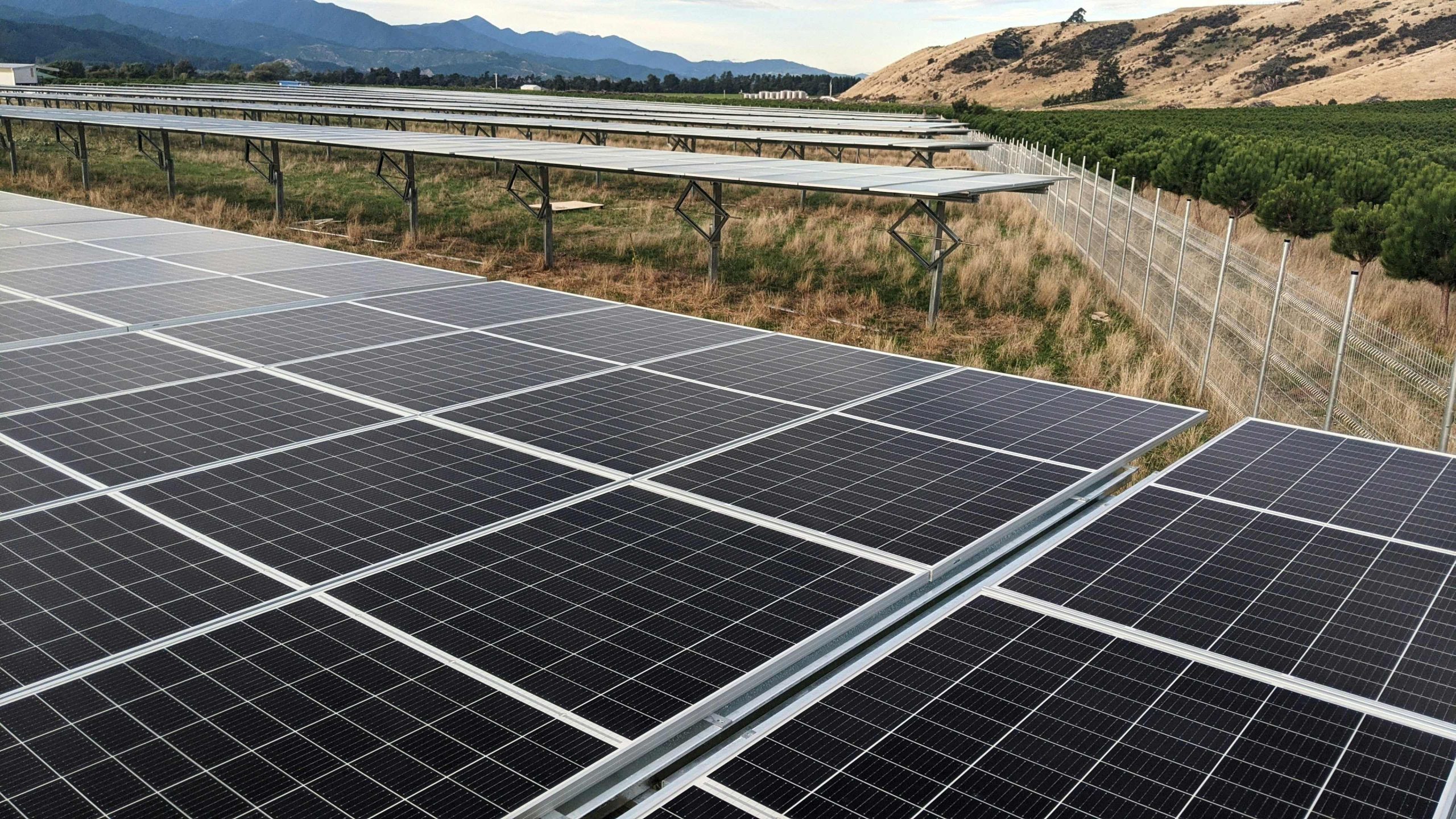
Saule Technologies is a pioneer in the research and manufacturing of perovskite photovoltaic cells – a new generation of solar cells.
About
In 2013, as a PhD student at the University of Valencia, Olga Malinkiewicz invented a revolutionary method to produce solar cells by coating perovskites on flexible foils. This achievement earned her multiple awards and garnered international media attention. In 2014, realizing that her breakthrough has the potential to impact the world on a massive scale, Olga teamed up with Piotr Krych and Artur Kupczunas, and Saule Technologies was created. Saule Technologies is a pioneer in the research and manufacturing of perovskite photovoltaic cells – a new generation of solar cells. Perovskite cells, printed by Saule Technologies on flexible foils, are lightweight, ultra-thin, semi-transparent and very effective, even in artifical light. Thanks to this, the range of possible applications of perovskite photovoltaic cells significantly surpasses the range of applications of traditional silicon technology. Releasing products available for licensing and first B2B sales (since early 2021) proves that Saule Technologies is a world leader in commercializing perovskite photovoltaic cells. Saule Technologies partners include companies such as Skanska, Columbus, Somfy, Google Cloud. Sources: https://sauletech.com/corporate-information/ https://sauletech.com/corporate-information/
Sustainable Development
Saule Technologies, a company based in Wrocław, has made significant strides in transitioning perovskite cells from scientific labs to production lines, marking a milestone in the widespread adoption of this technology. Perovskite-based solar panels, renowned for their versatility, flexibility, and efficiency even in low light conditions, offer a sustainable solution for energy generation. Saule Technologies emphasizes the adaptability of perovskite modules, which can be integrated into building facades, lightweight roof coverings, and IoT electronic devices, eliminating the need for frequent battery replacements. The company's product range includes photovoltaic awnings, roller blinds, and blinds, showcasing the diverse applications of perovskite foil. Over the past six years, perovskite cells have rapidly advanced, matching the efficiency of silicon cells while boasting characteristics such as ultra-lightweight, flexibility, transparency, and an ultra-thin profile. These features position perovskite technology as a revolutionary force in the photovoltaic market. Source: https://www.wroclaw.pl/przedsiebiorczy-wroclaw/saule-technologies-olga-malinkiewicz-columbus-energy
Sustainability Impact
Presently, Saule Technologies comprises a team of 40 professionals, including scientists, engineers, and administrative staff, hailing from 15 different countries. In recent months, Saule Technologies has embarked on a pioneering endeavor, collaborating with engineers from Korea, Malaysia, Great Britain, Singapore, and Japan to construct the world's first production line dedicated to printed perovskite cells. Demonstrating a commitment to global innovation, Saule Technologies is actively engaged as a member in various scientific consortia established in Europe to advance the development of perovskite cells. This affiliation provides the company with access to the latest scientific research, enabling the swift implementation of cutting-edge technological solutions for commercialization. Notably, Saule Technologies boasts one of the most modern and well-equipped research facilities, particularly in the field of optoelectronics. This state-of-the-art laboratory positions the company at the forefront of technological advancement, further solidifying its role as a trailblazer in the exploration and application of perovskite technology. Source: https://www.wroclaw.pl/przedsiebiorczy-wroclaw/saule-technologies-olga-malinkiewicz-columbus-energy
SDGs goals and Sustainable development strategy
Saule Technologies is a technology company specializing in the field of solar energy and the production of thin-film photovoltaic cells. The main focus of Saule Technologies is the development of innovative solutions based on perovskite technology. Perovskites are materials with a crystalline structure that can be used in the production of solar cells. The company concentrates on developing products that can be integrated into various types of surfaces, including external architectural elements, clothing, or electronic devices. This flexibility opens the way to innovative applications, such as smart windows, integrated building coatings, or clothing with built-in charging elements. One example of the application of Saule Technologies' products that aligns with Sustainable Development Goals is a project of creating an animal-tracking IoT (Internet of Things) device powered by our solar cells. The project was executed in collaboration with WWF (World Wide Fund for Nature) Ukraine and co-financed by the United Nations Development Programme (UNDP) and the Polish Challenge Fund. The initiative responds to the Sustainable Development Goals (SDG) of the United Nations, mainly Climate Action, Life on Land, Sustainable Cities and Communities, Affordable and Clean Energy, and Partnership for Goals. “Saule Technologies is proud to create solutions that can make a positive change in the world,” says Olga Malinkiewicz, founder and CTO. Source: https://sauletech.com/perovskites-on-european-bison/
Strategy & Mission
The Saule Technologies Group is the driving force behind the ownership and development of a groundbreaking new generation of ultra-thin, flexible photovoltaic cells, leveraging the potential of perovskites. Their cutting-edge technology empowers the utilization of these cells on a myriad of surfaces, ranging from building facades and light breakers in windows to car roofs, small IoT devices, and even yacht sails. The uniqueness of our technology translates into unparalleled possibilities, and we are actively engaged in integrating this innovative solution across diverse sectors of life and industry. Source: https://www.biznesradar.pl/a/119503,list-zarzadu-saule-technologies-oraz-wybrane-wyniki-za-pierwsze-polrocze-2023-r
Innovative approaches &Challenges
Saule Technologies has joined Platform-ZERO, a novel initiative co-financed by the European Commission (HaDEA), dedicated to eradicating defective production areas and substantially cutting down production costs within the photovoltaic sector. The Saule factory has been identified as one of the four industrial PV pilot plants across Europe where this groundbreaking strategy will be implemented and tested. The launch of the Platform-ZERO project is scheduled for this month. The primary objective of Platform-ZERO is to enhance the quality of photovoltaic device production while simultaneously reducing costs through the implementation of "zero defect manufacturing." This ambitious goal involves leveraging artificial intelligence in process monitoring on the production line to eliminate production defects. The effectiveness of this strategy will be evaluated in four pilot plants situated in different countries, with Saule Technologies' factory in Poland being one of them. The other three pilot plants are located in Spain, Germany, and Austria. Source: https://www.gramwzielone.pl/energia-sloneczna/109938/fabryka-saule-technologies-testowym-zakladem-produkcji-zero-defect-w-europie
Motivation
Watch! Thanks to perovskites you will throw away your chargers | Olga Malinkiewicz | TEDxWroclaw TWARZE INNOWACJI | Olga Malinkiewicz, Saule Technologies
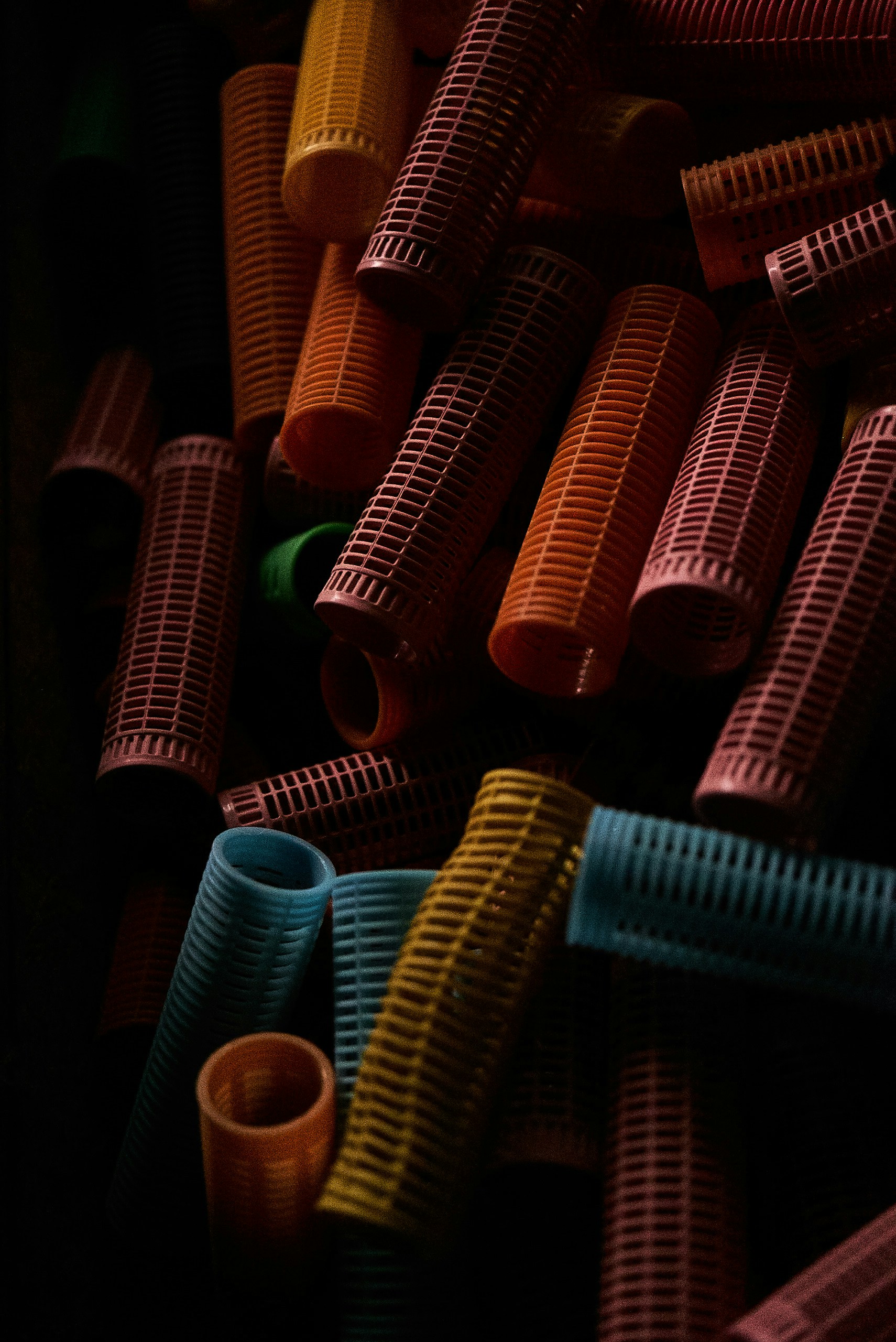
"Be a part of the solution, not pollution!"
About
Traceless Materials GmbH, a circular bioeconomy startup founded in Hamburg in 2020 by Dr. Anne Lamp, a process engineer, and Johanna Baare, a psychologist and MBA graduate, has developed an innovative biomaterial. This material, derived from agricultural residues and by-products of food production, is stable in storage, entirely sustainable, and biodegradable within a short period. Following the Cradle to Cradle concept, the material is designed to be returned to biological or technical cycles after use, minimizing environmental impact and maximizing resource utilization. Traceless Materials' product, traceless®, not only degrades quickly but also possesses the functional properties of conventional plastics without harming the environment. The company produces traceless® as a base material in granulate form, which can be processed into various end products by the plastics and packaging industry. Financing began with seed capital and has since been boosted by investments from various sources. The company aims to become the leading producer of organic plastic by 2030. Collaborations with major companies like OTTO, Lufthansa, and C&A demonstrate the market potential and impact of Traceless Materials' innovative solution. The company has received numerous awards and accolades for its groundbreaking approach to sustainability, positioning itself as a key player in the fight against plastic pollution.
Sustainable Development
The experience with regard to the sustainability of their business operations and the products they develop comes, among other things, from the training received by founder Dr Anne Lamp: She is a process mechanic and began developing the current product during her doctorate. Graduates with this academic training usually end up in less sustainable industries. However, Dr Lamp realised early on that she wanted to develop innovations with added value for everyone. She is also the founder of the NGO Cradle to Cradle Hamburg. This organisation brings together business, science, education, politics and civil society to make the cradle-to-cradle concept the basic principle of economic activity in the future. Following the example of nature, cradle to cradle means that all waste is turned back into a nutrient or energy that flows into the overall cycle and forms the raw material for something new. With this voluntary commitment, Dr Lamp gained valuable experience in the field of sustainability.
Sustainability Impact
Sustainability is part of Traceless' DNA. Without this aspect, the company would not exist at all. The start-up wants nothing less than to become the leading provider of plastic alternatives. That is why sustainable development is a top priority.
Innovative approaches &Challenges
The new types of plastic currently on the market only fulfil one sustainability criterion each. Traceless, however, fulfils them all: it is made from waste products from the agricultural industry and therefore does not compete with food. It is environmentally friendly as it is completely free of plastic and toxins. Around 80 % of CO2 emissions are saved during production compared to the manufacture of conventional plastic. In addition, it degrades within around 60 days without leaving any residue. This closes the cycle: a nutrient becomes a nutrient again, just like in nature. What's more, Traceless is the only substitute that can compete with petroleum-based plastic in terms of price and quality and is scalable.
Impact Evaluation
Traceless can draw on a comprehensive science-based life cycle analysis, as its financier Planet A uses this as a basis for deciding whether the product is worth supporting. The life cycle analysis is a life cycle assessment that predicts the impact of industrial production, from raw material extraction through production to disposal, including subsequent effects. Planet A, is a European venture capital fund that evaluates the environmental and climate impact of innovations before an investment is made. Transparency takes centre stage, as all evaluations and the methodology used are published . The life cycle analysis (LCA) carried out on the traceless material showed that... The production and disposal of traceless causes up to 95% less greenhouse gas emissions than the production and disposal of brand-new plastic, The total net reduction in greenhouse gas emissions is in the range of 26 to 76%, Traceless material significantly reduces the need for non-renewable energy sources, Traceless offers additional environmental benefits, such as avoiding the risk of leakage of harmful substances into the environment. Other positive environmental effects (not considered in this LCA) that could potentially result from traceless: Traceless offers a solution to significantly reduce the total amount of plastic waste and therefore plastic pollution. The absence of toxic and harmful additives eliminates the risk of such substances leaking into the environment, which in turn could promote biodiversity as ecosystems remain intact.
Motivation
Holistic sustainability is the founding motivation of Traceless. "(...) in fact, until recently, the entire traceless team worked for traceless on a voluntary basis." -Said one of the founders Johanna Baare in 2021. The numerous prizes that the company first had to apply for are also an incentive. After all, the road to "big" production is a long one. The feedback from winning prizes is therefore extremely motivating. In addition, they regularly report transparently on the environmental impact of their business activities via the Impact Report. Seeing that what they are doing really makes a difference and works is a real motivation for the founders and the team.
Sustainability Ideas
The idea for the product came to founder Dr. Anne Lamp while sailing, when they sailed directly into a plastic carpet on the open ocean. This immediately destroyed the idyllic atmosphere and the charm that sailing actually provides. The effects on the local ecosystems could only be guessed at. And even during her studies as a process engineer, she dreamed of combining her interest in nature with her career. The idea for Traceless Materials came about through her doctoral work in the field of biological cycles and the search for alternative materials, as well as her voluntary work in a cradle-to-cradle organisation. The founders regularly take part in conferences and apply for various prizes in the field of sustainability and innovation. There is always the opportunity to exchange ideas with other start-ups, entrepreneurs and experts.
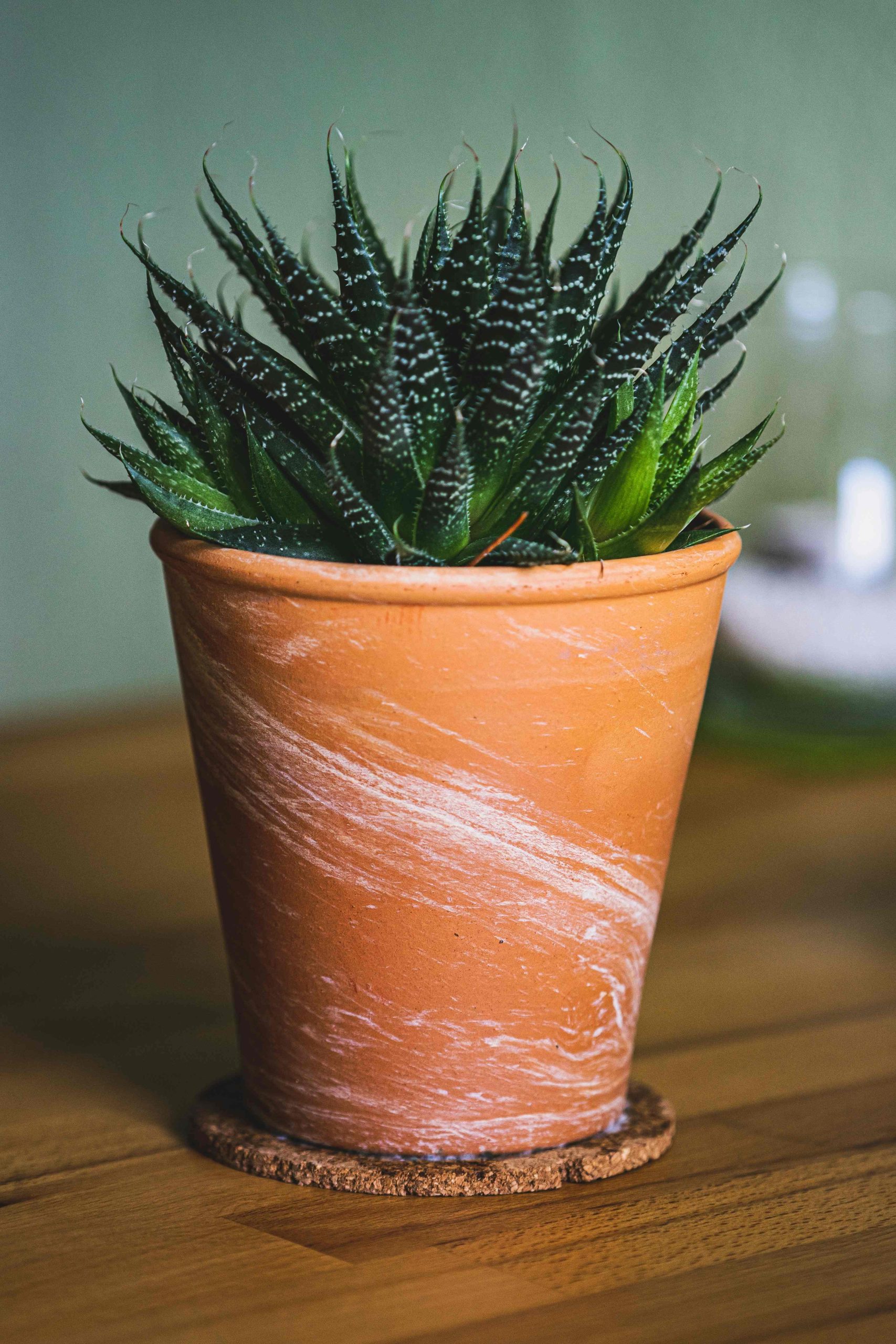
Sustainable flower pots which are biodegradable. They can be used at the horticultural production, and at home in your living room.
About
It all started in 2020 as an exam project! We bought material which we could use for printing a 3D flower pot. Afterwards we won a start up competition. The turning point that influenced the development of our company was a significant increase in customer interest in our product, coupled with winning startup competitions. We are now making sustainable flower pots which are biodegradable. They can be used at the horticultural production, and at home in your living room. In that way it substitutes both the plastic pot used at the horticultural production and the flower pot at your home. It comes in brown and in white. Our target group is mainly in the horticulture market which are open for new sustainable products, mainly larger organizations.
Sustainable Development
The main sustainable action of our company centres around our product, distinguished by its eco-friendly characteristics. We emphasise local production, using waste materials predominantly. This method reduces waste and lessens the environmental impact often linked with manufacturing processes. Our dedication to sustainability is reflected in our choice of materials and production methods, ensuring a positive contribution to the environment. Nonetheless, our involvement in developing new sustainable solutions is infrequent. Our current focus lies in enhancing and perfecting our existing product to ensure it adheres to the utmost standards of sustainability and effectiveness.
Sustainability Impact
Sustainable development profoundly influences our company's operations, as we are deeply committed to its principles. We prioritize sustainability in all aspects of our business processes, striving to minimize our environmental footprint and uphold ethical practices. Responsibility for implementing and coordinating adherence to sustainable development principles lies with all staff members, as we collectively take interest in promoting sustainability. With only three founders/co-owners comprising our team, each of us individually handles this matter, ensuring that sustainability remains a central focus throughout our operations.
SDGs goals and Sustainable development strategy
Goal 9. Industry, Innovation, and: Our innovative product is sustainable in itself, and if the horticultural industry uses it at their production their production will be more sustainable. At the moment they use plastic pots. Furthermore the product is produced locally in Denmark, but we make the opportunity for sustainable industrialization.
Goal 12. Responsible Consumption and Production: We mainly use nature waste materials for our flower pot. It is material such as dried grass, which is thrown away anyway, or other organic waste materials. The horticultural industry uses plastic pots now, and after use consumers leave them lying around in the landscape etc.
Goal 13. Climate Action: The plastic pot used in the horticultural industry is made of plastic which is bad for the climate. The industry in Denmark alone uses 268,8 millions every year, so that is a lot of plastic. We wish to substitute that with our sustainable flower pot. The plastic pot is often not produced locally, but our flower pot is - which is better for the climate.
Goal 15. Life on Land
Strategy & Mission
Our mission is to make the planet a little greener by reducing plastic use in the horticultural industry. Our vision is to extend our range of sustainable products, continually working towards a more sustainable future.
Innovative approaches &Challenges
The main challenge has been to maintain sustainability throughout all business processes and with all partners. While we have not yet faced significant demands for new adaptations from our business environment and stakeholders, we are open to discussions and ideas with our partners. Currently, there hasn't been a major push for new adaptations from the business environment and stakeholders. However, ongoing discussions with partners about potential ideas signify our readiness for change. Despite minimal demand for drastic shifts, we understand the importance of staying adaptable. We're committed to integrating new ideas that enhance our sustainability efforts, ensuring alignment with stakeholder expectations and market trends.
Impact Evaluation
We are not so far in the process yet. We do not have a way to evaluate impact yet.
Motivation
Our primary motivation for running a sustainable business is deeply rooted in our desire to contribute to a healthier planet. We are driven by the ambition to make a tangible difference in environmental conservation, particularly by reducing plastic use. By focusing on this goal, we aim to lessen the ecological footprint of the horticulture industry and, in turn, foster a more sustainable, greener future. Our commitment to this cause is not just a business decision; it's a reflection of our responsibility towards the planet and future generations. As we are a small team of three founders at RePot, the motivation to adhere to sustainability rules comes from our shared vision and collective responsibility. Each of us is deeply invested in our mission to create a greener future, and this shared passion naturally drives our commitment to sustainable practices. We foster a culture of open communication and collaboration, where each member is encouraged to contribute ideas and innovations that further our sustainability goals. This inclusive approach ensures that we all remain engaged and motivated, constantly reminding us of the impact our work has on the environment and the importance of our collective efforts in making a significant difference.